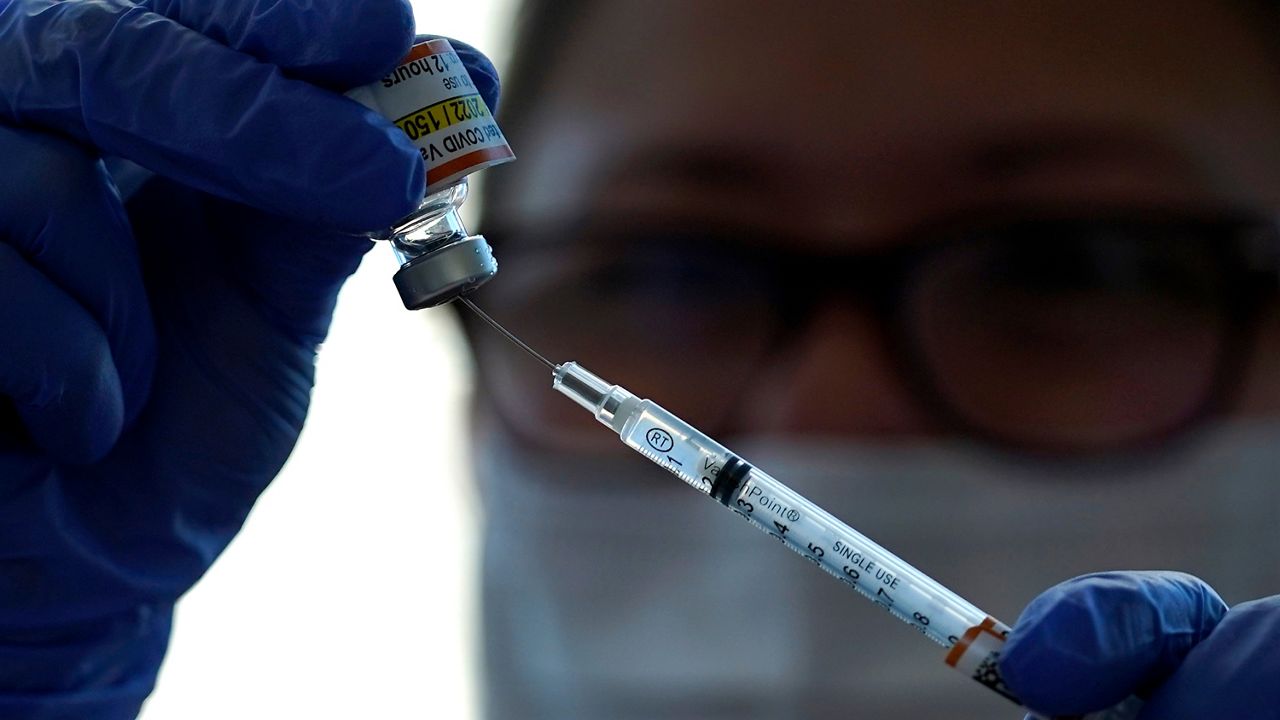The Food and Drug Administration wants to simplify the COVID-19 vaccination process by making it more like the one used for the flu.
The agency is proposing that a single COVID shot be approved each year for most people, one targeting a specific strain or strains of concern at the time of approval. A panel of independent advisers is set to consider and vote on the proposal Thursday.
What You Need To Know
- The Food and Drug Administration wants to simplify the COVID-19 vaccination process by making it more like the one used for the flu
- The agency is proposing that a single COVID shot be approved each year for most people, one targeting a specific strain or strains of concern at the time of approval
- The FDA also wants to use the same formulation for primary series and booster doses
- The FDA’s proposal is included in a briefing document released Monday in advance of a meeting Thursday of the agency’s committee of outside vaccine advisers
The FDA also wants to use the same formulation for primary series and booster doses. Currently, with the exception of the third dose of Pfizer’s vaccine for young children, the initial series of COVID vaccines use the same composition as when they first became available. Pfizer’s and Moderna’s booster shots, however, were updated last fall and are bivalent, targeting the original strain as well as the omicron BA.4 and BA.5 subvariants.
The FDA’s proposal is included in a briefing document released Monday in advance of a meeting Thursday of the agency’s committee of outside vaccine advisers. The panel is set to vote on the proposal.
The agency says in the document that a move to a single vaccine composition “should reduce complexity, decrease vaccine administration errors due to the complexity of the number of different vial presentations, and potentially increase vaccine compliance by allowing clearer communication.”
As COVID-19 is still infecting tens of thousands of Americans every day and killing about 4,000 of them each week, the U.S. has struggled to vaccinate its residents with the updated booster shots. Just 15% have received the boosters.
Throughout the pandemic, the CDC has faced criticism about its shifting and complex guidance around COVID-19.
The Centers for Disease Control and Prevention recommends everyone 6 months and older stay up to date with their COVID-19 vaccines. Health experts say booster shots are needed to counter new variants and waning immunity from previous vaccination or infection.
The FDA has approved or authorized four difference vaccines, although the mRNA shots by Pfizer and Moderna account for the vast majority of the doses administered. For most people, the Pfizer and Moderna primary series require two shots to be given, with three to four weeks left in between, depending on the brand.
Most people are eligible for a booster shot at least two months later. Young children who completed Pfizer’s three-shot primary series are not yet eligible, but those who received Moderna’s are.
The FDA proposes that COVID strains be assessed at least annually and says it would approach its advisory committee around early June each year with its strain selection for the fall season. The goal is to deploy an updated vaccine by September at the latest. The schedule would closely follow the one used for flu shots.
The agency says certain groups of people — young children, older adults and the immunocompromised — could still require two shots each year. The FDA proposal also leaves the door open for more than one version of a booster in a year if a variant emerges that is resistant to the available vaccines.



